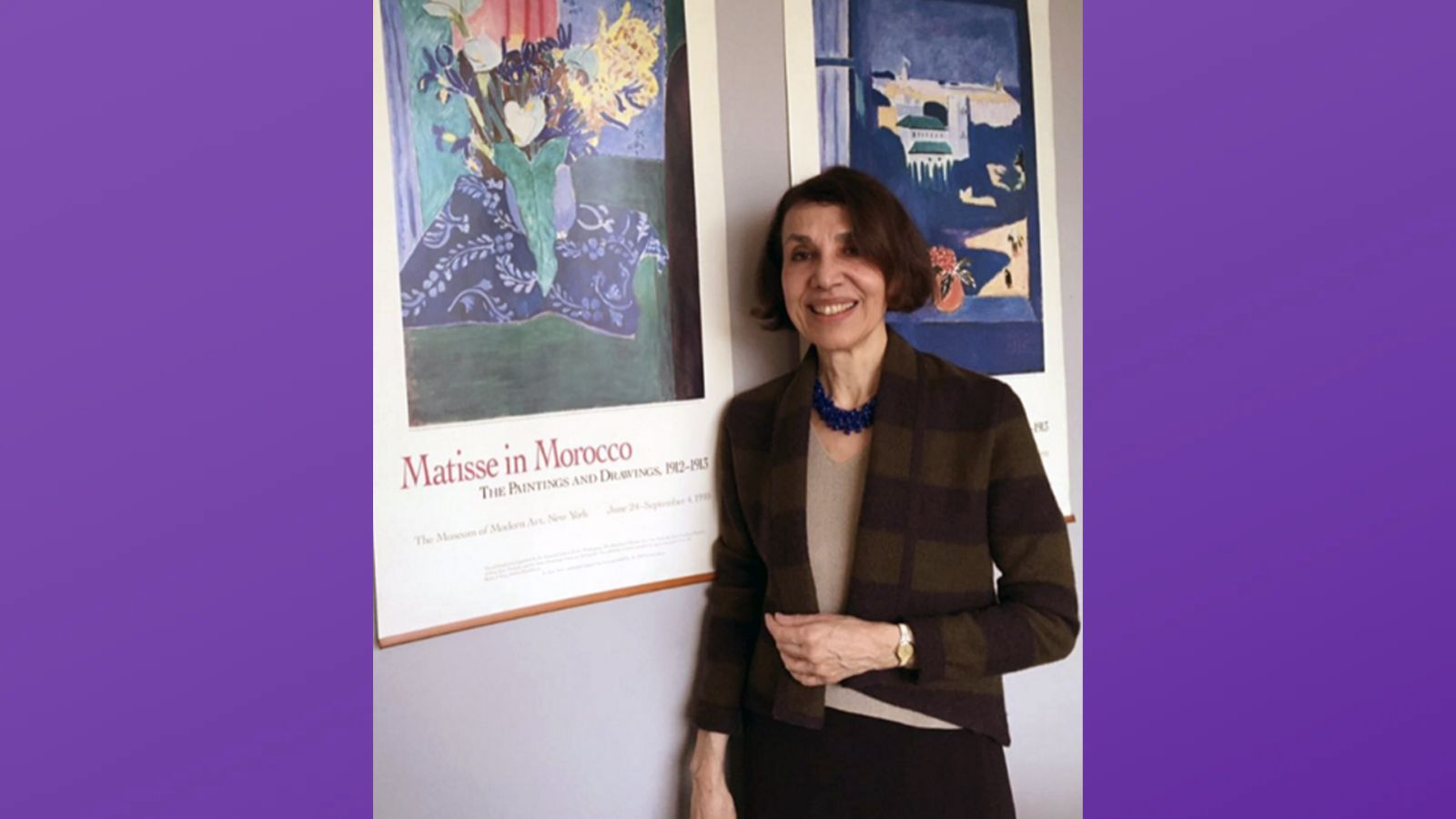Marlène Barsoum, a beloved Hunter College professor of French and Francophone literature for 31 years, died April 21 in New York City. She was 73.
Barsoum, who spoke English, French, Italian, and Arabic, taught popular courses that used the theories of Freud and Jung to explore dreams and images in literature or that examined the ravages of war through poems, stories, and novels. Students appreciated her innovative approach.
“Her intellect and her enormous generosity of spirit made her much beloved,” said her friend Jan Goodwin. “As Emily Dickinson wrote, ‘Unable are the loved to die. For love is immortality.’”
Born in Alexandria, Egypt, where she lived until age 15, Barsoum emigrated first to Canada and then to America with her family to escape the violent political repression of the Nasser years. Her bicultural upbringing -- her Egyptian father was a Coptic Christian and her mother an expatriate Italian Catholic -- contributed to her fluency in languages. Themes of uprooting and alienation suffused her work.
“I was too young to really understand the complexity of the journey,” Barsoum told an interviewer, Amy Russo, some years ago. “It took many, many years to understand what it is to be uprooted.”
She added: “For me it’s wonderful to have found this area in literary studies that I can understand not only intellectually but also in a very personal way.”
Barsoum often wrote about early 20th century intrepid female travelers who left the comforts of their European homes to voyage to lands barely explored, such as Alexandra David-Neel, the first European woman to set foot in the Tibetan city of Lhasa. In 2017, she published a book, Les voies de la paix dans les récits d'Andrée Chedid, to enthusiastic reviews. It discussed universalism and alienation in the works of a Cairo-born French littérateur.
Barsoum also examined the causes and effects of war, a topic she first focused on after the U.S. invasion of Iraq, which she believed should never have happened. She was also deeply interested in Middle East affairs.
A woman of great poise and compassion, Barsoum practiced yoga and meditation for decades. Her tremendous inner strength enabled her to deal graciously with the cancer that took her life, her friends said.
“The one theme to which all our conversations inevitably returned was the challenge of learning how to live,” said her colleague and friend Prof. Michael Taormina. “Marlène used to say that because each of us is changing, and everything around us is changing all the time, the challenge is to adapt in such a way as to keep an open heart and an open mind, to live with joy in spite of suffering.”
Barsoum earned her PhD at Columbia University, publishing her dissertation as a book: Théophile Gautier's “Mademoiselle de Maupin:” Toward a Definition of the Androgynous Discourse.
She is survived by a sister, Caroline, and a brother, Bruno. A funeral was held on April 26 at St. John the Evangelist Church.


